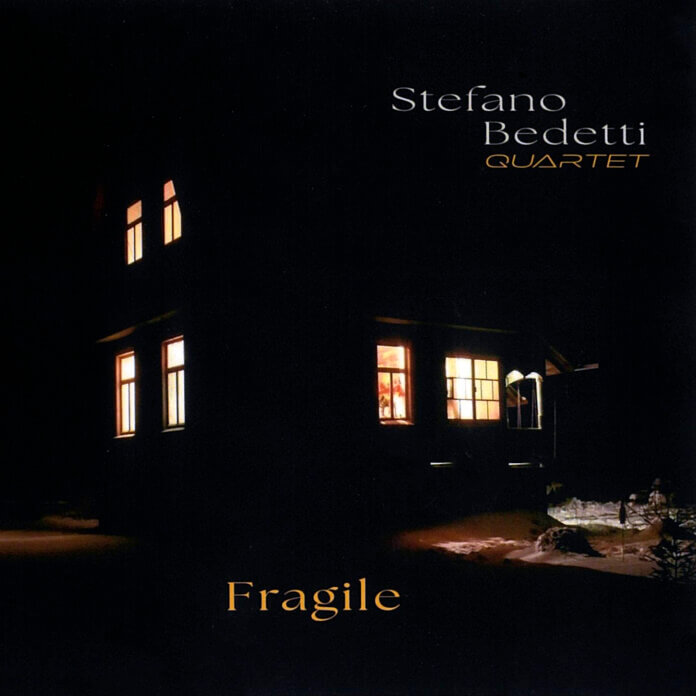Stefano Bedetti
Fragile
Encore Music, encore-music.it
Stefano Bedetti (tenor saxophone), Yazan Greselin (piano, keyboards, percussion), Francesco Angiuli (bass), Lorenza Ciscognetti (drums)
Riccione, September 26–27, 2024
The new album by saxophonist Stefano Bedetti, one of Romagna’s most dynamic jazz voices, opens with an insistent chordal motif that introduces “Un Nuovo Inverno,” a piece that begins with a reggae-inflected groove and opens into a refined, rhythmically charged take on modern mainstream jazz. Following his previous trio outing, Fragile sees Bedetti return to the helm of a classic saxophone quartet, with a tighter, more propulsive sound. Within this framework, he seems freer, more expressive, thanks to the crisp and articulate support of his rhythm section.
Fragile distills over thirty years of Bedetti’s artistic journey—six original compositions that reflect his transatlantic musical identity, shaped between Italy and the United States and culminating in a homecoming of sorts. His wide-ranging experiences and influences emerge clearly throughout: a muscular, full-bodied sound deeply rooted in the Afro-American jazz tradition, a remarkable technical command, and a post-bop vocabulary fluently internalized.
The quartet proves versatile and cohesive, supporting Bedetti across a spectrum of moods and tempos. There’s meditative depth in pieces like “Ballad to the Silence” and the warmly lyrical “Ferrets in the Sunset,” contrasted with more fiery and percussive energy in tracks like “Close Calls.” In the evocative “Di neve lenzuola,” the group explores dynamic contrasts and subtle shifts in time and texture, with Bedetti showing his gift for thematic development and emotional pacing.
The album closes with “Samba per chi,” where the leader uses the Brazilian inflection suggested by the title as a launchpad for a lively, bop-driven improvisation—an exuberant conclusion to an album that is both personal and accomplished. Fragile is a compelling portrait of a saxophonist at the height of his expressive powers, grounded in tradition yet unmistakably his own.
—Flavio Caprera
